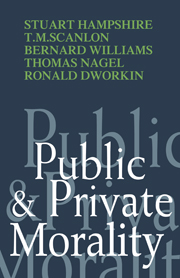1 - MORALITY AND PESSIMISM
Published online by Cambridge University Press: 05 June 2012
Summary
I shall examine a current of moral ideas which was partly philosophical and partly something less precise, a movement in public consciousness. British utilitarianism was a school of moral thought, and a school also of general philosophy, which set out to do good in the world, even though it was only a philosophy; and it may even be judged to have succeeded in large part over many years in this aim. It is certainly not easy, and perhaps it is not possible, to calculate the real effect upon men's lives of any new system of moral ideas and of any new philosophy. But the utilitarian philosophy brought new interests into the study of political economy: into the theory and practice of public administration: into the rhetoric, and into the programmes, of movements of political and social reform in Britain. Indeed the utilitarian philosophy became part of the ordinary furniture of the minds of those enlightened persons, who would criticise institutions, not from the standpoint of one of the Christian churches, but from a secular point of view. As represented by Sidgwick at Cambridge, and in the minds of liberal and radical social reformers everywhere, the utilitarian philosophy was until quite recently a constant support for progressive social policies.
- Type
- Chapter
- Information
- Public and Private Morality , pp. 1 - 22Publisher: Cambridge University PressPrint publication year: 1978
- 9
- Cited by



